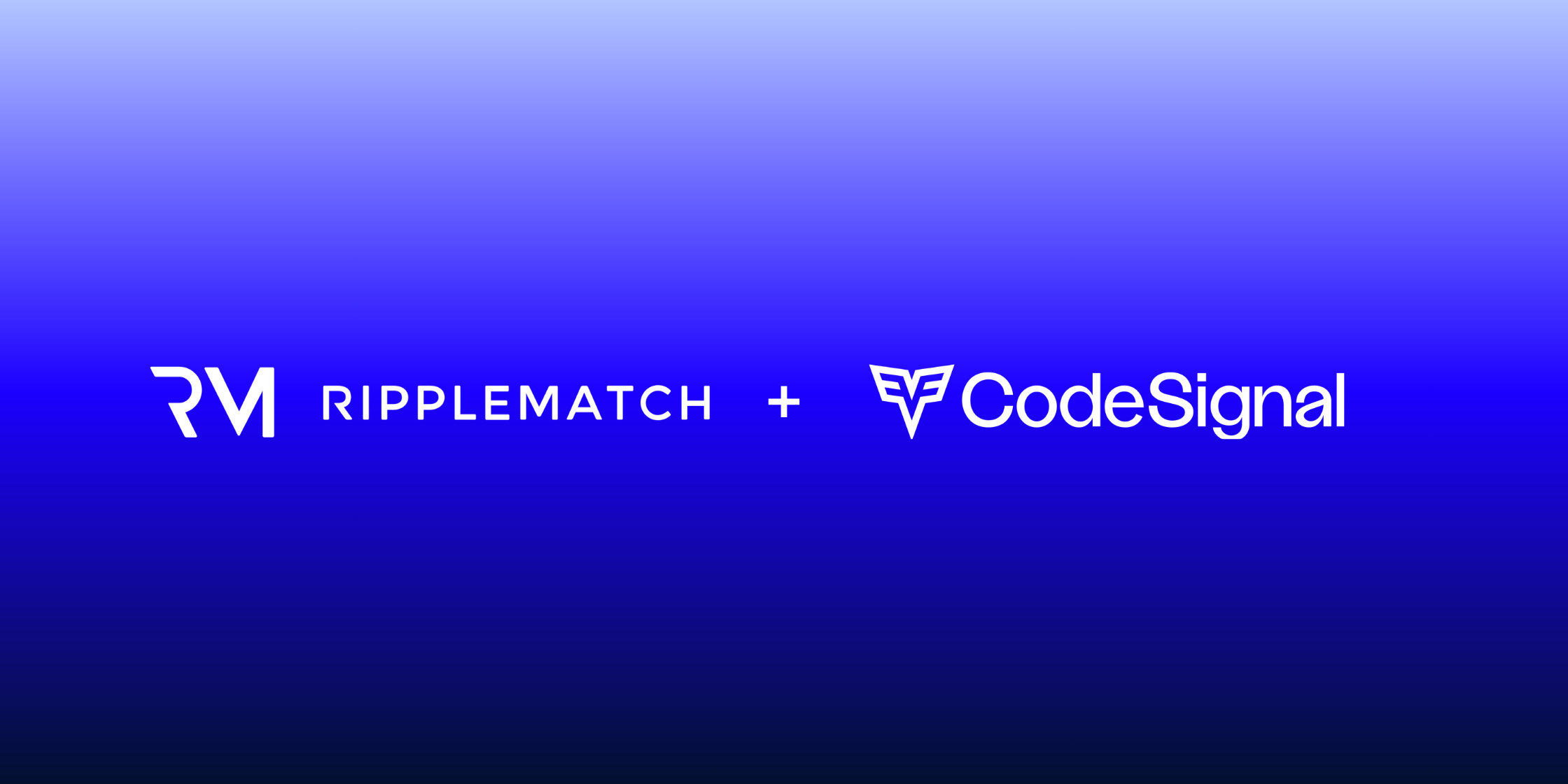Insights
A blog for leaders who care about recruiting and retaining the next generation of talent.
RippleMatch x CodeSignal: Powering Skills-Based Hiring in Early-Career
At RippleMatch, we’ve always believed that opportunity should be based on what you can do, not where you went to school. That’s why we’re especially excited to share our new partnership and deeper integration with CodeSignal, which brings verified technical and professional skill certifications directly into the RippleMatch marketplace.
The Rise of the AI Generalist: How to Adapt Your Entry-Level Hiring Strategy to Hire Difference-Makers
If you lead early-career hiring, you’re probably bracing for tougher conversations with your CFO. In most industries, hiring targets are getting smaller, budgets are tightening, and the instinct might be to scale back entry-level hiring. After all, if AI is automating more of the “starter” work, do you still need as many junior hires?
All Articles
A Guide to Virtual Recruitment Events: What They Are and How to Approach Them
Recruiting Events Software: 2023 Buyer’s Guide
Why a Quick Application Response Time Is Essential Today
Gen Z Recruiting Software: 2023 Buyer’s Guide
The Most Efficient Recruitment Software in 2023
4 Ways Recruiters Can Support First-Generation College Students
Trend Watch: Why Employers Are Getting Ghosted By Gen Z
What Months Do Most Companies Hire for Internships and Entry-Level Jobs?
How Fast Does Gen Z Expect to Be Promoted?

Request a Demo
Learn about the recruiting platform that works for you!
-1.png)

Join Our Newsletter
Stay on the cutting edge of recruitment – we'll share our best content, upcoming events, and reports to help you navigate next-gen talent.



.png)









